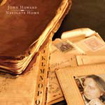
John Howard: Navigate Home (Kid)
Thirty-five years separates this album from John Howard's respected debut Kid in a Big World. For such a definitive product of the divinely effete Seventies, it was only in this, the decade of significant zeros, that his efforts have garnered appropriate praise. Time can be cruel, but if you wait long enough, and deflect the blows of obscurity and frustration, it can be capable of thoughtless kindness.
As a recipient of this kind of strangeness, John Howard has in his early fifties reached a point of creative maturity few achieve , especially after almost twenty-five years in the "dump-bin," and it is a further irony that this album is entitled Navigate Home.
During the period of its gestation, he was a temporary resident of transitory homes: the home of the past, the home within his head, and a home as yet unbuilt. Waiting to emigrate to Spain, he realized a series of songs sublimely inhabited by English ghosts, a haunting and restful work, completed and refined in his new country, but without even a hint of sunshine or sangria, only suggestions of clouds and summer showers. Knowing he was leaving England allowed him to plunder his past with a fresh and concise perspective.
These songs have a longing and a sense of focused regret. Nostalgia is too obvious and unsubtle a label. There is a strange air of resolution and refinement present. It is a gathering up of half a century's memories, his most personal album so far, but free of anger and misery. Tranquil in tone, but pulled by the magnets of retrospection and anticipation, these songs have a striving but restful nature, a certain sadness, but balanced by a spirit of joyful projection.
These are kindly conversations sung into an unsuspecting ear. Optimism is paramount in the title track, a song that ennobles the need to leave in order to create something better, something fresh, despite it being much easier to stay in one place. He touchingly continues to weave these thoughts of home with memories of his mother who died in 1974, and the sense of what creates one's knowledge of belonging. Absence, reflection, and the restlessness in everyone is the grain at work in pushing this pearl along.
From the opening song, "A Lion in Winter," which has a strong sense of Christmas comforts about it, this is an assured treatise on how sublime songcraft can get, the simple flourish of an artist at peace with his talents. Affectionately revisiting a long-dead old lady who taught piano, through to iconic figures like Brian Wilson and Phil Spector, this is an album inhabited by characters both famous and obscure, but with equal billing in Howard's democracy of memory. "Miss Aston's Disappointment" packs a profoundly emotional punch, taking hold of a piece of music, the bane of many a childhood pianist, and rendering it an epic of tremendous emotional pathos. It is the glistening gem in a collection of wonderful moments, an extremely personal sketch of transition, the desire to strive beyond the confinement of a teacher's small world edicts. That he uses this as a springboard for "The Leaving (Prayer)," a reflection on looking back at a decreasing English shoreline from the ferry leaving Plymouth, suggests the layers and amalgams at play. I hear the whispered eloquence of Clifford T. Ward in this, and many of these songs; they possess the same subtle sophistication, the same sense of sharing.
There is also the refined vibe of the likes of Paul Williams and Randy Newman. "In Whose House" wears a certain Lennon and McCartney vibe, although the sort of feckless, reckless individual immortalized by "In whose life is your stake claimed, in whose pleasure lies more pain?" seems out of sorts with a mop-top confection. As he signs off with "Precious (Alone Is Hard to Do)," he sings, "Faultless, no-one's faultless, but I believe perfection lies in truth."
This is an artist at the top of his game. Perhaps Spain will adopt him as the national treasure he should have been in Britain. He wouldn't be the first Englishman to import success back home from abroad. It would be a perfect irony if that happened, and success like that is the dish best served cold.
